

Shirley
Dorsey
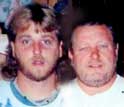
Rainbow Farm
Massacre

Peter
McWilliams

Donald
Scott

Esequiel
Hernandez
Who Will Be Next?
For
an online article about the Drug War Body Count, click
here
|

|

|
|
|
|
 In
Memory of Civilian Casualties
In
Memory of Civilian Casualties
of the Drug War
of the Drug War
While this gallery discusses known cases of law enforcement's murder of civilians, several of whom fought back in self defense, many more such incidents have occurred that have not been documented. The names and incidents of many such casualties of the Drug War will never be known.
This page is dedicated to those victims, known and unknown, who died in the cross-fire of turf wars due to the profit motive of illegal drugs. To those killed or injured in police raids, and in raids based on bad tips or wrong addresses. To those who suffered painful deaths while being denied access to Medical Marijuana. To those who defy the laws to obtain their medicine of choice. To those who have contracted the AIDS / HIV virus due to the Drug Warrior mentality which discourages and criminalizes needle exchange programs. To those who died from contaminated drugs as a result of the black market. To those who died because they were denied essential support programs in order to fund the building of prisons and other prohibition enforcement structures.
Finally, it is further dedicated to all those compatriots who have fought for justice and are no longer with us to see when that day will come...
Massacre at Rainbow Farm,
September 2001
 \
\Tom Crosslin (left) and Rollie Rohm at Rainbow
Farm, home of an annual hemp and music festival and a First
Amendment political gathering. <http://www.rainbowfarmcamp.com/>
Grover T. (Tom) Crosslin lived for the cause of marijuana legalization. In 2001, he died for it. Crosslin, 46, the owner and operator of Rainbow Farm, an alternative campground and concert site in Newberg Township outside of Vandalia, Michigan was shot and killed on his property by an FBI agent in the afternoon of September 3, 2001. His long-time partner, Rolland Rohm, was shot and killed early morning Sept. 4 by Michigan State Police on the property. The shootings ended a stand-off that had begun on August 31.
Beginning in 1996, Tom Crosslin had sponsored marijuana reform rallies under a variety of names at Rainbow Farm. While he was a visible and outspoken proponent of reforming marijuana laws, the rallies caused few legal problems until 2001. Things began to unravel in May, when local law enforcement authorities, using as a pretext the traffic death of a youth who had attended the festival, swept down on the campground, arresting Crosslin and his friend Rollie Rohm, among others, and charging them with a variety of marijuana and firearms violations.
Though police emphasized the traffic death (which occurred the day after the youth was at the campground) in justifying the bust at the time, they later revealed that it came as the result of a two-year-long investigation of Crosslin's farm activities.
By mid-summer, the pressure on Crosslin and Rohm was mounting. Crosslin faced 20 years in prison on marijuana and weapons charges, and was out of jail on a $150,000 bail bond as the state was moving to seize Rainbow Farm under civil asset forfeiture proceedings. A local judge had issued an injunction barring Crosslin from holding any further marijuana-related gatherings at the campground. And in a move that must have elevated the pair's situation from intolerable to unbearable, Michigan child welfare authorities had taken Rohm's 12-year-old son, Robert, and placed him in foster care after the May raid.
Obviously distraught, Crosslin decided that the government was not going to get the benefit of his many years of labor creating the Rainbow Farm. Throughout Labor Day weekend, according to law enforcement accounts, Crosslin and Rohm systematically burned down the ten structures on their beloved farm, shot at and hit a news helicopter filming the fires, shot at and missed a police surveillance plane, and sprayed the woods bordering the 34-acre property with gunfire to keep police at bay. Other reports say that the two were merely firing into the air to hold police at bay and other people at the scene questioned whether the two had actually fired their guns at all, asserting that they were merely being carried around as a possible self-defense. In any case, the two men allegedly confronted law officers with raised weapons, each to be shot dead in turn.
None of this would have happened if the laws against marijuana were reformed, or if they had been left to have their peaceful gatherings, or if government officials had shown some respect and restraint in handling this volatile situation. But like pawns on a chessboard, the Drug Warriors had pushed Tom and Rollie into a checkmated position where they felt their only choice was liberty or death.
For an excellent video on Rainbow Farms, contact Band Wagon Video Productions, 574-848-5969 and ask for "Memories of Rainbow Farm." The conpany also has a video about one of the festivals held there, "Messages From Rainbow Farm."
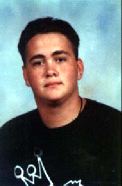 Jared
Lowry
Jared
Lowry
Died in 1997 at age 21, due to preventable medical complications after a heroin overdose
Jared Lowry's troubles began during a spring break trip with friends living near Houston, TX, when he was arrested at the age of 17 for a small amount of mari-juana. Though he was prosecuted and received probation, the experience caused much suffering and loss of work and money for the family. When Jared's father died of a sudden heart attack later that year, he was grief-stricken and felt responsible. He became very depressed.
The next year, Jared tried all kinds of drugs &emdash; cocaine, pills and heroin. When his mother, Jennifer Daley, confronted him, he first denied it, but then broke down and cried and asked for help to fight his addiction. Though it was a tremendous ordeal getting him into a rehab facility, they found one they felt would help. He made it through one weekend there before his insurance company forced him to move to a different facility he did not want. Jared tried to make it work, but found that it did not address the issues he was dealing with. He persevered, got out and moved away. In 1997, following moves to Arizona and Oregon, Jared returned to Texas for a "fresh start." He got a job he liked and was planning on continuing college. Everyone was optimistic about his future. But on the morning of October 24, his mom received a phone call to contact the Austin police department.
They told her that seven young people had taken heroin the night before and Jared had also taken Valium. His friends had driven him around for three hours in his own vehicle afraid to take him to the hospital. They feared that if they took him in, they would all get into trouble. Though prompt medical attention could have saved Jared's life, it was fear, ignorance and a lack of societal commitment to treating those in need killed him.
 Gerardo
Anthony Mosquera Jr.
Gerardo
Anthony Mosquera Jr.
Age seventeen at his time of death from a self-inflicted bullet to his head in 1998. Gerardo Mosquera, Jr., a teen who took his studies seriously and worked after school to help support his family, became despondent when his father, a legal resident in the US for 29 years, was deported by the INS in December, 1997.
Mosquera Sr., 38, was sent back to Colombia, his native country that he hardly knew, despite the fact his wife and children were born in the US and he was gainfully employed as a forklift operator. His father's deportation came as a result of a crackdown on so-called "criminal aliens." His sole felony conviction stemmed from the sale of one $10 bag of marijuana to a police informant in 1989. As this law bans people from ever returning to the US, he was even denied permission to return for his son's funeral.
Jonathan West
His death from AIDS inspired his friends to sponsor the Medical Marijuana Initiative of 1991. San Francisco's Proposition P won with 80% of the vote.
Rev. Accelyne Williams
Retired Methodist minister Accelyne Williams was chased around his Boston, MA apartment by members of a police team looking for drugs and guns, when he collapsed and died of a heart attack at the age of 75. Acting on a tip by an informant, the police conducted a no-knock raid.
No guns or drugs were found, as it was soon discovered they raided the wrong apartment!
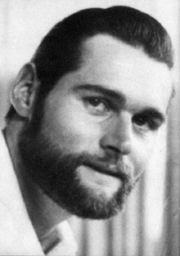
 Donald
Scott
Donald
Scott
Age 62 at the time of his death at his home in Malibu, CA. on October 2, 1992.
Scott and his wife, Frances Plante, were awakened by violent pounding at the door on the morning of October 2, 1992. As Frances attempted to open the door, a narcotics task force from the LA County Sheriff's Dept. burst into the home, weapons in hand.
Frances was pushed forcefully from the door at gun point. She cried out, "Don't shoot me, don't kill me!" With a gun aimed at her head, Frances looked to her right and saw Donald charging into the room, waving a revolver above his head. She heard a deputy shout, "Put the gun down! Put the gun down! Put the gun down!" As Scott was doing so, Frances heard three gun shots ring out, apparently from two sources.
Her husband was killed instantly.
Scott was a millionaire who owned 250 acres of breathtakingly beautiful land that was adjacent to federal park lands. Attempts had been made by the feds to buy the property, but Scott was not interested in selling. Claims that there might be pot growing on the land, made by agents who did aerial surveillance, were used to get a search warrant.
An official inquiry suggested that agents had hoped this raid would lead to asset forfeiture of the property Scott would not sell. The coroner's report listed the cause of death as a homicide. No marijuana was found. Scott did not even smoke it. In January, 2000, the Scott family won a $5 million wrongful death settlement from the government over the shooting.
 Leon
Kelly
Leon
Kelly
Age 15 at time of death in Janesville, WI. Joe Zwaska, an undercover police officer, had been drinking before he fatally shot the teen. Tests showed Leon had traces of marijuana in his blood.
Ronald C. Loop, Jr.
Age 25 at time of death on March 11, 1988 in Brick Township, NJ. Suspected of marijuana dealing, Loop had just picked up a Federal Express package that contained 10 pounds of marijuana. He was unarmed and was shot as he fled from police outside his home.
 Chad
MacDonald
Chad
MacDonald
When told he was facing a lengthy jail sentence after being arrested with about a half ounce of methamphetamine, seventeen year-old high school student, Chad MacDonald, agreed to act as an informant for the Brea Police Department in California.
The pressure he was under to make a buy large enough to satisfy the police and avoid prosecution on his charges led directly to his torture and death at a suspected drug house on March 3, 1998 and the rape and shooting of his sixteen year-old girlfriend, who had accompanied him. Revenge was alleged as the motive in court documents filed on two suspects who were arrested for the attacks.
Following assurances that her son would not be in danger if she agreed to allow him to act as an informant as they proposed, his mother, Cindy, signed the department's release form. This allowed Chad to go home. At that time, she was unaware that the arrangement involved Chad wearing a wire while making a buy until after one had taken place. Chad had confided in his mother that he felt pressured to make increasingly larger buys and that detectives had said his three previous undercover buys were not enough to make his legal problems go away. Mrs. MacDonald repeatedly told police that she had wanted him to end the arrangement.
Had she been advised that he could have qualified for a high intensity drug treatment program rather than faced hard time in custody, she would have jumped at it. Mrs. MacDonald believes her son would be alive today if the police had handled his case differently. Brea police deny he was working for them on the day he died.
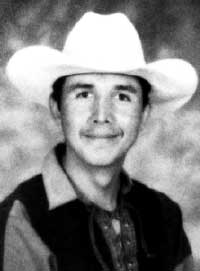 Esequiel
Hernandez
Esequiel
Hernandez
 Esequiel
Hernandez
Esequiel
HernandezMay 14, 1979 - May 20, 1997
The first US citizen killed by military troops on US soil since 1970, when students were killed by National Guard troops at a Kent State University Vietnam War protest.
Esequiel 'Zeke' Hernandez, born and raised in Texas, was considered one of Redford's "best and the brightest" with aspirations of becoming a game warden or park ranger. He was only eighteen years old at the time of his death, in the isolated border town of Redford, Texas (with a population of almost 100).
Esequiel was born the year before Ronald Reagan was elected President. Prior to Reagan's administration, the Posse Comitatus Act had prevented active duty military troops from engaging in domestic law enforcement. During his term it was amended to allow troops to be on patrol in the Drug War at home.
Zeke was tending his family goat herd when he was shot by 22-year-old Marine Corporal Banuelos, who was part of the Joint Task Force Six, a military unit assigned to anti-drug operations. The Marines, dressed in camouflage battle fatigues, were hiding in the bushes looking for drug smugglers.
While tending the goats, Zeke carried a rifle that his grandfather had given him to use to protect the goats from snakes and wild animals. The marines claim that he fired two shots in their direction, and upon seeing him raise his rifle again, Banuelos fired the fatal shot from an M-16. Townspeople claim they only heard one shot. The autopsy showed that Esequiel was not facing Banuelos when he was killed. He lay bleeding on the ground unattended for twenty minutes before he died.
The townspeople had no idea that Marines were patrolling the area in camouflaged outfits known as 'ghillie suits,' which make them virtually invisible to the unknowing eye. They have been traumatized by the event. Children are afraid to go out and play. Adults are afraid to take an evening stroll. People do not believe that the area is a major drug smuggling route, and they're uncomfortable with having Marines, who are trained to kill, on ground patrol in their backyards or flying low in helicopters that scare goats and people.
Normally when dealing with such traumatic events, the government sends in counselors to help people cope with the situation. But the town of Redford received no help. In fact, the government has not even apologized to Zeke's family. It has not admitted any mistakes, and has not cleared Esequiel of any wrongdoing. However, in January, 1998, it was announced that no charges would be filed against the Marine who killed him. Esequiel's family won a wrongful death suit against the government.
 Robert
Lee Peters
Robert
Lee Peters
Age 33 at time of death in St. Petersburg, FL in July, 1994. Deputies did not identify themselves before breaking into the house as the family prepared to watch a movie. Friends and relatives say Robert may have mistaken them for burglars. Deputies did not know there were two children and his ailing stepfather (who had a heart attack after the shoot-out) in the house at the time of the no-knock raid.
The police tried to smash through the front door with a battering ram. Peters fired a .357 magnum through the door and was struck three times by the SWAT team.
Two pounds of marijuana were confiscated from his home. Records indicate that a confidential informant bought 7.3 grams of marijuana. An undercover detective purchased 27 grams. His brother George was charged and did not resist arrest. George said his brother wouldn't have resisted either, had he known they were deputies. "All they had to do," he said, "was knock on the door."
 Manuel
Ramirez
Manuel
Ramirez
Age 26 at time of death in Albuquerque, NM in an early morning, no-knock drug raid in 1990. According to allegations in the lawsuit, Manuel was asleep on the living room couch in his home when Albuquerque Police Department (APD) Special Weapons and Tactics (SWAT) team officers and Navy SEALS approached his front door and rear windows to serve a search warrant looking for cocaine.
The APD officers, with the assistance of one or more SEALs approached the house and rigged a cable between the apartment door and a tow truck. Police broke out windows in the apartment's two bedrooms, including one directly above a crib where a 5-month old baby was sleeping. The crash of glass woke up a niece who ran from the bedroom and called to her uncle, because she was afraid the family was being robbed, the complaint says. Manuel reached for an unloaded gun just as the tow truck ripped the door off the apartment. Police and SEALs burst into the apartment and shot Ramirez twice in the chest without announcing who they were, nor giving any order to drop the weapon before firing. Officers allegedly threw his wife and her niece to the floor, handcuffed them and, for the first time, announced they were police. Police found two marijuana cigarettes, a bottle with methamphetamine pills, and a spoon with drug residue in the search.
 Annie
Rae Dixon
Annie
Rae Dixon
Age 84 and bedridden when she was killed by police in a 1992 drug raid in East Texas. No drugs were found in the home. A 28 year-old officer said his automatic pistol accidentally discharged when he kicked open Mrs. Dixon's bedroom door.
Earlier that night, an informant was given $30 to go into the Dixon home where he claimed he could buy drugs. He emerged with crack cocaine, but police did not search him either before and after the purchase. The informant reported that a few young women and children lived there, but he didn't know about the sick woman. Police got a search warrant and returned to the house just after 2 am. They sprinted up the ramshackle porch and smashed the front door with a battering ram. As they swept in, the officer kicked in the door to Ms. Dixon's bedroom and fell, slamming his elbow against the door and firing the gun. The officer said he collapsed and "started throwing my guts up crying because I knew I had shot somebody that didn't have no reason to be shot."
 Shirley
Dorsey
Shirley
Dorsey
Aged 56 at the time of her suicide in the face
of criminal prosecution for cultivation of Medical
Marijuana
On April 1, 1991, Shirley Dorsey committed suicide. She had used cannabis to help control her crippling back pain. Shirley could not face the prospect of testifying against her 70-year-old boyfriend, Byron Stamate, who had been arrested for growing marijuana for her medicine.
Under
the relentless attack of an ambitious prosecutor, she became
depressed about the very real possibility of being left
impoverished and homeless, due to the forfeiture proceedings
on their property.
The text of Shirley Dorsey's suicide note follows:
"They want to take our property, security and herbal medicine from us, even though we have not caused harm to anyone.
"It is not fair or in the best interest of the people of society.
"I will never testify against you or our right to our home. I will not live in the streets without security and a place to sleep.
"I am old, tired and ill, and I see no end to the harassment and pressures until they destroy us."
Bruce Lavoie
On August 3, 1989, Lavoie lay peacefully sleeping in the room he shared with his young son in the village of Hudson, New Hampshire. At five in the morning he was awakened by a loud noise as his whole home was shaken violently. A battering ram had smashed his front door, and a dark band of armed men rushed into his small apartment. Rising to defend his son, Lavoie was shot to death as his little boy watched helplessly. They found one cannabis cigarette butt.
 Barbara
and Kenny Jenks
Barbara
and Kenny Jenks
Kenny Jenks was a hemophiliac who contracted AIDS through contaminated blood in 1980. He unknowingly infected his wife, Barbara. Both became too sick to work, and they lived on disability. They discovered and used marijuana to help them eat and gain strength following chemotherapy.
Following their arrest, their lawyer argued in court that this was a case of medical necessity. The prosecution agreed and noted that they would die if they did not use it. After a lengthy legal struggle that sapped their strength, the DEA allowed them into the federal 'Compassionate IND' program, which provides some patients with six pounds of marijuana per year for medical use. The Jenks went public with their story, and soon more than 300 other AIDS patients had applied to the program.
More than 30 of these had successfully proven their medical necessity and were approved through the proper channels when the Bush Administration abruptly shut down the intake program in 1992. Even those who had already been approved were denied access to the medicine, and only the few patients who were previously receiving government marijuana at that time have been allowed to continue to do so.
Once again, people who had attempted to obey the law found themselves with no legal recourse to get their necessary medicine.
There was a huge outpouring of patient requests to the Jenks to try to help, but they were powerless to do anything about it. Their crusade for justice and compassion had been wiped out at the moment of its triumph. The stress of their personal ordeal from arrest, prosecution and legal battle, to this final, abrupt, arbitrary and irrevocable change in the federal 'rules' regarding medical marijuana all took their toll on the infirm couple's health.
Frustrated and depressed, the Jenks took a turn for the
worse, and both Barb and Kenny died soon after the IND
program was terminated.
Jon Jon Wilson
December 1958 to May 1993. While fighting AIDS, he was a recognized fighter for medical marijuana.
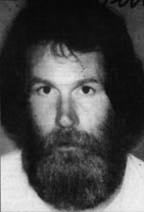 Gary
Earl Shepherd
Gary
Earl Shepherd
Age 45 at the time of his death at his home in Broadhead, KY, on August 8, 1993, after a day-long, casual standoff that began when a police helicopter flew over and landed outside the Shepherd home, the following conversation occured.
Officer:
"Are these your plants?'
Gary: "Yes."
Officer: "We are going to cut them down."
Gary: "You will have to kill me first."
Gary was a Viet Nam veteran who had a crippled left arm from the war. Shepherd had deep conviction about medical marijuana, which he used to relieve his pain. He sat in a lawn chair guarding his plants for about six or seven hours, during which time no serious attempt was made to negotiate. Finally, Shepherd and his long-term companion, Mary Jane Jones, were ordered to put their hands in the air. As he raised his rifle to comply, police snipers hidden in a corn field shot Gary several times in the head and chest. Shepherd's four-year-old son, Jake, was sprayed with his father's blood. Mary Jane, the mother of his child, was grazed by a bullet of a Kentucky law enforcement officer.
 Son
of Bobby & Kathy Bowman
Son
of Bobby & Kathy Bowman
The eight year-old son of Bobby and Kathy Bowman was killed in his bed as a narcotics detective fired four shots, thinking that Mr. Bowman was about to leap out a window. His father was a suspected drug dealer. Kathy Smith Bowman said she and her husband thought they were being robbed.
Bobby Bowman picked up a shotgun he kept by the bed and opened fire. They lived in East Lake Meadows housing project in DeKalb County.
Scott W. Bryant
Age 29 at time of death when he was shot by police in Beaver Dam, WI, on April 28, 1995. Bryant was unarmed and did not resist in any way when police with a no-knock warrant charged through the door of his home. His 7-year-old son watched his father die, while an ambulance took 35 minutes to arrive. Police later reported finding less than 3 grams of marijuana (enough for 2 or 3 cigarettes. Police claim it may have been an accidental shooting.
HOME
